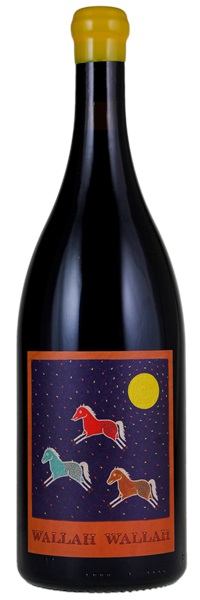Estimate

Dried blackcurrant, smoked meat, rosemary, peppercorn, moss, oyster shell and tangerine peel on the nose. It’s full-bodied with firm, creamy tannins. Rich, savory and spiced with lasting intensity. Chewy, lingering herb notes.
Earth, funk, smoked meat, ash, black olive, peat and medicinal aromas lead to a tour de force of fruit and savory flavors that are flat-out intense. It's the finish of this wine, however, that most impresses. It grabs you and shakes you and refuses to let go. It's shockingly good.
...notes of blue fruits, ground pepper, bacon fat, lavender, and violets, it hits the palate with medium to full-bodied richness, a seamless, elegant texture, ripe yet certainly present tannins, and a great finish.
...spiced potpourri, dried flowers, blackberry essence and spiced cherry compote. Medium to full-bodied, the wine offers a delicious array of fresh, ripe fruits that oscillate between an elegant and spicy nature, with flavors of dusty, worn leather, red and black peppercorns, umami and baked earth. The wine somersaults to an elongated, juicy and mineral-laced finish and will undoubtedly bring pleasure for the next few decades... ...it's both age-worthy and crushable...
Black cherry, blackberry, mocha, licorice and a whiff of menthol on the nose...very dry, savory wine shows little easy sweetness today to its flavors of dark fruits, minerals, game and black pepper but it boasts impressive energy and mineral spine. Finishes firmly tannic and long.